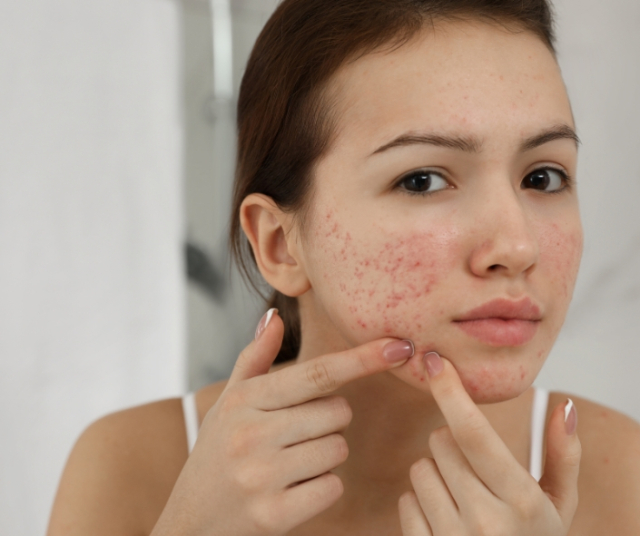Acne is a common skin condition that affects people of all ages and genders. The pimples, blackheads and blackheads associated with acne can be frustrating and affect your self-confidence. Fortunately, there are many effective strategies to get rid of acne and achieve clear, healthy skin. In this article, we will explore a variety of approaches to treating and preventing acne, as well as the underlying causes of this skin condition.
Daily skin care.
Maintaining a proper skin care routine is essential to preventing and treating acne. This includes gently cleansing the skin twice a day with a gentle, oil-free cleanser to remove excess oil, dirt, and dead skin cells. Additionally, it is important to use a gentle toner to balance the skin's pH and a non-comedogenic moisturizer to keep the skin hydrated without clogging pores.
Avoid comedogenic products.
When choosing skin care and makeup products, it's important to look for those that are non-comedogenic, meaning they won't clog pores or cause acne breakouts. Comedogenic products, such as certain oils and creams, can worsen acne and contribute to clogged pores. Opt for products labeled "non-comedogenic" or "oil-free" to keep your skin clear and healthy.
Adoption of a healthy diet.
Diet plays an important role in skin health, and some foods can trigger acne breakouts in some people. Foods high in refined sugars, saturated fats, and dairy can increase sebum production in the skin and cause acne breakouts. Instead, opt for a diet rich in fruits, vegetables, whole grains, and lean proteins to keep your skin clear and healthy from the inside out.
Adequate hydration.
Drinking enough water is essential to keep your skin hydrated and help eliminate toxins from the body. Proper hydration can help prevent sebum buildup in pores and reduce inflammation associated with acne. In addition to drinking water, you can also keep your skin hydrated by applying a non-comedogenic moisturizer after washing your face.
Do not squeeze the grains.
Although it may be tempting to squeeze pimples to get rid of them quickly, doing so can make the problem worse and lead to permanent scarring of the skin. Excessive handling of grains can worsen inflammation and increase the risk of infection. Instead, let the pimples heal naturally and use specific topical treatments to speed up the healing process.
Use of products with active ingredients.
Some active ingredients, such as salicylic acid, benzoyl peroxide, and glycolic acid, are effective in treating acne and preventing clogged pores. These ingredients can be found in a variety of skin care products, including cleansers, creams, and specific acne treatments. When choosing products with active ingredients, be sure to follow the instructions for use and avoid excessive use to avoid skin irritation.
Consider medical treatments.
In cases of severe or persistent acne, the help of a dermatologist may be needed to find the most effective treatment. Medical treatments for acne may include topical medications, such as creams and gels, as well as oral medications, such as antibiotics and isotretinoin. A dermatologist can evaluate your skin type and specific condition to recommend the most appropriate treatment for you.
Self-care practices.
In addition to topical and medical treatments, certain self-care practices can help prevent acne and keep skin clear and healthy. This includes avoiding touching your face with dirty hands, regularly washing bedding and towels, and keeping your hair clean and out of your face to prevent oils and hair products from clogging your pores.
Getting rid of acne may require patience and consistency, but with proper skin care and treatment, it is possible to achieve clear, healthy skin. By adopting a consistent skin care routine, avoiding comedogenic products, and following proper self-care practices, you can significantly reduce the frequency and severity of acne breakouts. If acne persists or worsens, don't hesitate to seek the help of a dermatologist to determine the most appropriate treatment for your specific skin type and condition.






